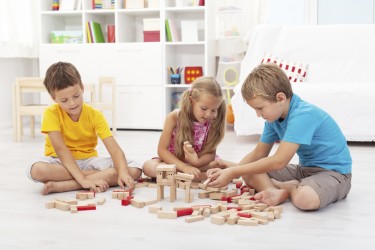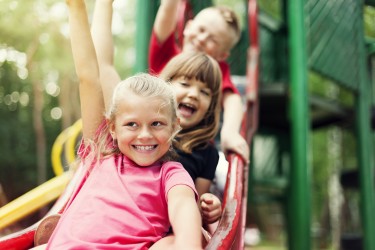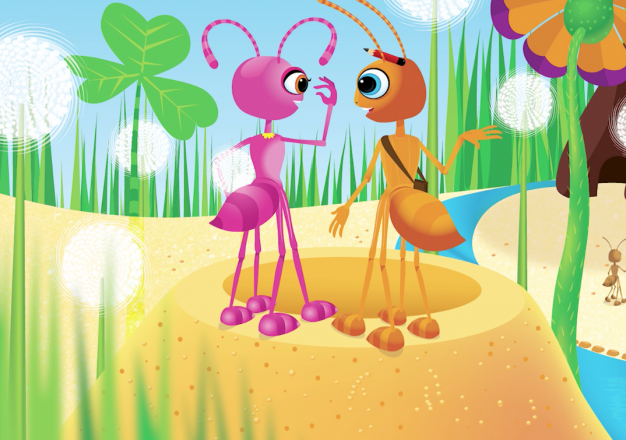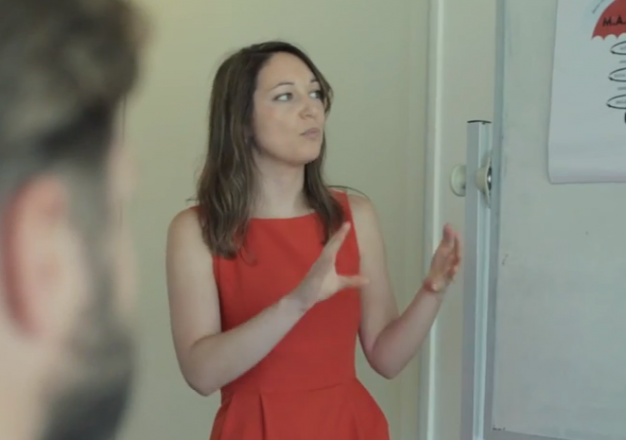Building Friendship Skills: From Birth to 7years
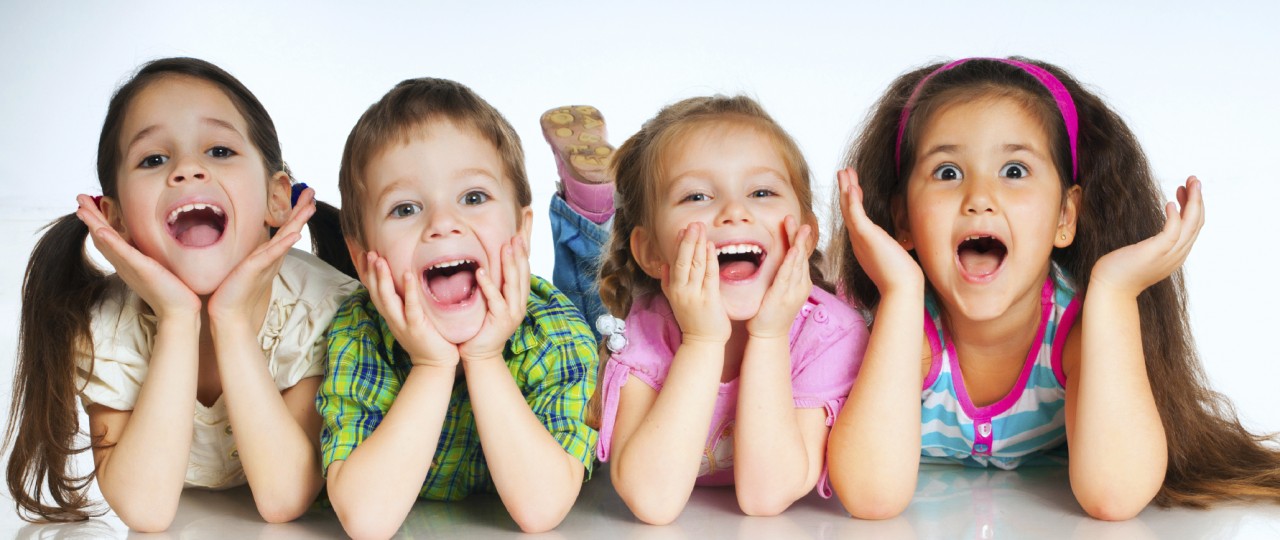
| Posted: | December 8, 2015 |
| Author: | Aisling Mulvihill Speech-Language Pathologist |
Share this article:
The Development of Friendship Skills:
Children’s needs, skills and ideas about friendship change as they grow. The ability to understand others and take their needs and views into account develops and changes over time. Friendship moves from interactions that are self-focused in the early years to relationships that are based on sharing and trust in the adult years. As children mature they display greater self-control, become increasingly self- and other-aware, and are more able to understand another’s perspective. An awareness of the developmental stages of friendship helps parents and teachers know what to expect and how to support friendship skills at various stages in a child’s life.
This Many Minds Blog article will outline the developmental stages of friendship from birth to 7years, and place a focus on the relevant skills and supports for each stage.
Stage: Birth – 1year
From birth, babies are primed to form relationships with their carers. Babies are biologically biased to attend to the human face and respond to the voice (Leppanen & Nelson, 2009). As children move through their first year of life they begin to develop some early social communication skills such as looking at others, smiling, giving, imitating and touching. The interactions that babies have with carers at this stage in life support strong foundations for early language and social skills development.
Babies are biologically biased to attend to the human face and respond to the voice (Leppanen & Nelson, 2009).
Supports:
• Encourage social attention by engaging in face to face interactions. Be at your child’s level when you interact and let your child see and explore your face (Pepper & Weitzman, 2004). In supporting social communication we want babies to become more people than object focused.
• Attract eye contact by holding interesting objects close to your face to encourage your baby to ‘tune in’ to you.
• Provide feedback to reinforce any attempt at interaction. Smile, speak, coo or play with your baby in response to their noises, smiles, cries and reaches. This promotes early turn-taking that is important for later play and conversation skills (Centre on the Developing Child, 2015).
• Engage in early social turn-taking games (e.g. peekaboo).
• Imitate your child’s actions (e.g. waving, shaking items such as musical instruments, babbling) and encourage him/her to imitate yours. Imitation is foundational to later learning, language and social skills.
• Monitor your child’s ability to track the human voice. Call their name when you move around a room.
• Use simple language and gesture to talk about what is happening in the moment. This promotes early language development that is important for social communication.
• Engage with your child’s interests to hook their attention. This supports the development of ‘joint attention’, the shared focus of attention on an object. ‘Joint attention’ is foundational to the development of both language and social awareness.
• Engage in repetitive play actions to increase social expectations (e.g. incy weensey spider, horsey-horsey).
Stage: 1-2 Years
Young toddlers begin to notice, show interest and identify each other by name. At this developmental stage, toddlers tend to play alongside each other in what is called ‘parallel play’ but they do not readily interact with each other. While play is not often reciprocal, imitation and ‘parallel play’ provide positive social and cognitive experiences (Poole, Miller & Booth-Church, 2003). One and two year olds are often more interested in eliciting attention from adults or older children who are more capable of responding to their needs, directing the play, and creating fun. With a growing awareness of the self and others toddlers begin to understand the impact of their actions on others through cause and effect (e.g. taking a toy off John will make him cry).
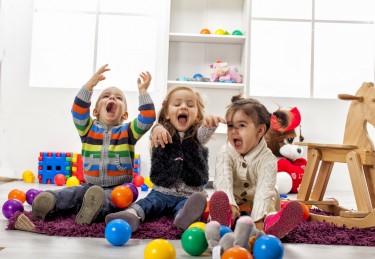
Supports:
• Face to face interactions continue to be important in supporting social attention. Be at your child’s level when you interact and let him/her see your face. This promotes active listening (i.e. tune in to notice) important for later learning and social interactions (Sherlock & Mulvihill, 2013).
• Place toddlers face to face to encourage them to notice each other and imitate actions.
• Coach early emotional and play behaviours. Label simple emotion, model and encourage greetings such as hello and good-bye, and facilitate turn-taking in play.
• Add language to describe interactions and displayed emotions. This helps your toddler understand the impact of their actions on others’ emotions.
For example, ‘You took the car. Now Harry is sad. You can say: Sorry Harry’.
• Give your child the words and appropriate actions needed to manage challenges within peer interactions. It is easier to replace behaviour with an appropriate alternative than to stop the behaviour.
For example, if your child is biting in protest, encourage your child to say ‘stop’ and put up his/her hand to signal stop.
• Engage in small groups. Large groups can be overwhelming for toddlers. Provide opportunities and space for toddlers to play by themselves should they feel overwhelmed.
• Continue to provide adult attention in play interactions. Social learning and play continues to be more adult than peer driven at this stage in development.
Stage: 3-5years:
From three to five years children begin to engage in ‘undifferentiated perspective taking’. Children recognise that others thoughts and feelings are separate from their own, but frequently confuse the two or do not consistently consider this information (Gurucharri & Selman, 1982). At this stage in development children tend to define their friends as someone who is near them, who they see regularly or who has toys they like. Paired play is common and children may develop a preference for some playmates over others. While still focused on their own wants and needs (i.e. egocentric) children begin to acknowledge other’s ideas and engage in shared planning during play (e.g. building brick constructions, playing home or shop and including other’s ideas). Increased understanding of sequence and order concepts (e.g. first, next, now, soon, later) allow for more successful sharing and turntaking.
While still focused on their own wants and needs 3 to 5 year olds begin to acknowledge other’s ideas and engage in shared planning during play.
Supports:
• Coach self-awareness using the following script that guides a child’s awareness of their own body clues and emotions: I see your stomping feet, I hear your loud voice, I understand you are feeling angry (Sherlock & Mulvihill, 2013). Self-awareness provides an important foundation for emotion control.
• Coach social awareness (i.e. tune in to others) and perspective taking (i.e. tune in socially) using the following script that helps children recognise others’ body clues, thoughts, feelings and appropriate actions to follow: I see John is_______, maybe he is thinking/feeling ________, maybe you should say/do _______ .
• Children may not have the language they require to deal with challenges and may present as aggressive or withdrawn when this happens. Rather than saying ‘use your words’ adults can provide the language children need to cope with challenges in supporting more adaptive behaviours.
For example, John is playing with his truck and Peter approaches but John pushes him away.
Adult: ‘John you can say, Peter I’m not finished my turn, you can have it next.’
• Keep play simple and provide everyday household objects to support pretend/imaginative play. Imaginative play is important for children’s social learning. This form of play encourages children to ‘take roles’ and think about another’s point of view.
• Engage in imaginative play with children; extend on play sequences with new ideas and model cooperation. Ask questions about what children are doing and narrate what is happening.
• Set up and support imaginative play with peers to encourage sharing of ideas and cooperation.
• Talk about past daily events to support self-reflection and help children develop social hindsight. For example, ‘You had a fun playing with John. He really liked your helicopter. When you let him play with it he was really happy and thought you were a good friend.’
Stage: 5-7 years
From five to seven years children become increasingly motivated by friendship, are capable of considering another’s thoughts and feelings (Gurucharri & Selman, 1982), and display a growing awareness of the impact of their actions on others. There is an increased sense of curiosity in others and children begin to ask socially motivated questions (i.e. questions about another’s thoughts, feelings and experiences). Children consider friends to be those that fulfil practical needs, are helpful and can be relied upon for assistance. Children who are helpful, friendly and complimentary earn peer acceptance. An increasing ability to use social hindsight and foresight allows children to move beyond the ‘here and now’ in their understanding of social situations (i.e. children begin to interpret social situations in terms of what has happened before and what might happen next). Cooperation and reciprocity (i.e. ‘give and take’) become important in maintaining friendships. With a growing awareness of the consequences of their actions, children can more readily engage in early social problem solving and negotiation (e.g. ‘If I Iet her play with my toy now, she might let me have a go on her scooter later’). Children become more eager to join in group play but often lack skills to do so effectively. In their efforts to join in play children may ‘stand-by’ on the periphery of groups awaiting an invitation. Alternatively some children may engage in silly ‘notice me’ behaviour in their attempt to attract the attention of peers (Poole, Miller & Booth-Church, 2003).
From five to seven years children become increasingly motivated by friendship.
Supports:
• Encourage children to consider and adapt to others’ interests in play. Profile the interests of peers in the classroom and help children identify those peers that share similar interests (i.e. common ground). A sharing of interests and activities supports friendship building.
• Help children identify the impact of their actions on others with regards to both negative and positive consequences. For example:
Adult: ‘When you won and laughed at John’s mistake, he started crying and felt sad. Maybe you could shake his hand and say, Well done John, you played a great game.’
OR
Adult: ‘John was interested in playing soccer. When you asked him to join in the game he was very excited and high-fived you. He thought you were being a good friend.’
• Allow mild conflict to unfold but step in where required. At this age, many children do not have the skills needed to manage conflict alone. Coach conflict resolution using the following steps:
1. Diffuse or deescalate the situation
2. Define the problem
3. Brainstorm solutions
4. Pick a solution to try
• Practice social questioning and compliments to support more appropriate ‘joining in’ behaviours (e.g. What are your favourite games?).
• Set up play dates. Well-planned play dates provide time and space to develop meaningful connections and to practice social skills.
• Talk about daily social events to support self-reflection and develop social hindsight. Relate these events and experiences to future situations (i.e. social foresight).
For example:
Adult: ‘You were very kind to share your new toy with John today. How do you think that made him feel? Do you think he will be excited to visit your house the next time? What do you think he would like to play with next time?’
Building Friendship Skills: 7years to Adulthood →
References:
Centre on the developing Child (2015) Retrieved December 4, 2015, from http://developingchild.harvard.edu/science/key-concepts/serve-and-return/
Gurucharri, C. & Selman, R.L. (1982). The development of interpersonal understanding in childhood, preadolescence and adolescence: A longitudinal follow-up study. Child Development, 53, 924-927.
Leppanen, J.M., & Nelson, J.A. (2009). Tuning the developing brain into social signals of emotions. Nature Review Neuroscience, 10(1), 37-47.
Pepper, J. & Weitzman, E. (2004). It Takes two to Talk. Canada: The Hanen Centre.
Poole, C., Miller, S.A., Booth-Church, E. (2013). Ages and stages: How children build friendships. Retrieved January 14, 2015, from http://www.scholastic.com/browse/article.jsp?id=3747174
Sherlock, D. & Mulvihill, A. (2013). Pick Your Moment. Brisbane: M.A.ST.E.R Institute Publications
Sherlock, D. & Mulvihill, A. (2013). Name of the Game. Brisbane: M.A.ST.E.R Institute Publications
Sherlock, D. & Mulvihill, A. (2013). Seeing Red. Brisbane: M.A.ST.E.R Institute Publications
Sherlock, D. & Mulvihill, A. (2013). Stay in Line. Brisbane: M.A.ST.E.R Institute Publications
About the MASTER Institute
MASTER provides services, resources and guidance for parents, teachers and allied health professionals in supporting the social and emotional wellbeing of young children. Dr Deberea Sherlock and Aisling Mulvihill founded the MASTER Institute in 2012. From the combined professions of educational and developmental psychology and speech-language pathology, they bring to MASTER over 20 years of collective specialised experience in the area of children’s social and emotional development, and a deep understanding of children and the challenges they face. Their work is strongly guided by a desire to engage children through creative learning and the wider value of working collaboratively with families and schools.




